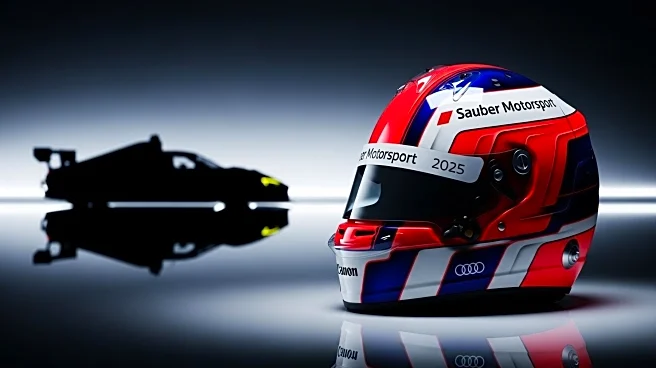What's Happening?
Nico Hülkenberg, a seasoned German Formula 1 driver, is set to drive for Sauber Motorsport starting in 2025. This move is significant as it coincides with Sauber's impending transition to Audi in 2026. Hülkenberg, known for his robust presence and strategic racing style, has had a long career in Formula 1, racing for teams like Williams, Force India, Sauber, Renault, and Haas. Despite his extensive experience, Hülkenberg has been somewhat unlucky in securing podium finishes, although he has consistently demonstrated reliability and technical acumen.
Why It's Important?
Hülkenberg's return to Sauber marks a pivotal moment for both the driver and the team. As the only German driver on the current F1 grid, Hülkenberg carries the legacy of German motorsport, following in the footsteps of legends like Michael Schumacher. His experience and skill set are expected to be valuable assets for Sauber as they prepare for the Audi takeover. This transition could potentially elevate the team's competitiveness in the F1 circuit, offering Hülkenberg a renewed opportunity to achieve podium finishes.
What's Next?
With the Audi takeover scheduled for 2026, Sauber is likely to undergo significant changes in terms of technology and team dynamics. Hülkenberg's role will be crucial in this transition, as his experience could help guide the team through this period. The collaboration with Audi is expected to bring advanced technological resources, potentially enhancing the team's performance. Stakeholders in the F1 community will be watching closely to see how this partnership unfolds and its impact on the competitive landscape.
Beyond the Headlines
Hülkenberg's career trajectory highlights the challenges faced by talented drivers in securing top-tier opportunities within Formula 1. His journey underscores the importance of strategic career moves and the role of experienced management in navigating the complexities of the sport. The impending Audi partnership also reflects broader trends in F1, where automotive giants are increasingly investing in the sport, potentially reshaping team strategies and competitive dynamics.










